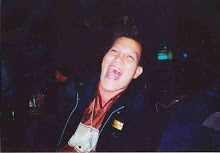Feast of the Transfiguration of Our Lord, God and Savior Jesus Christ
August 6
Introduction
The Feast of the Transfiguration of Our Lord, God and Savior Jesus Christ is celebrated each year on August 6. The feast commemorates the transfiguration or metamorphosis of Christ on Mount Tabor, when our Lord appeared in His divine glory before the Apostles Peter, James, and John.
Biblical Story
The event of the Transfiguration is recorded in three of the four Gospels: Matthew 17:1-9, Mark 9:2-8, and Luke 9:28-36. Jesus took the Apostles Peter, James, and John with Him up upon a mountain, and while they were on the mountain Jesus was transfigured. His face shone like the sun, and His garments became glistening white.
Moses and Elijah appeared with Christ, talking to Him. Peter declared how good it was for them to be there and expressed the desire to build three booths for Moses, Elijah, and Christ. This reference to the booths could imply that this occurred during the time of the Feast of Tabernacles when the Jews would be camping out in the fields for the grape harvest; for this Feast had acquired other associations in the course of its history, including the memory of the wanderings in the wilderness recorded in the Old Testament book of Exodus.
While Peter was speaking, a bright cloud overshadowed them. A voice came from the cloud saying, "This is my beloved Son, with whom I am well pleased; listen to Him." When the disciples heard this they fell on their faces filled with awe. Jesus came to them and told them to not be afraid. When the three looked up they saw only Jesus.
As Jesus and His disciples came down the mountain, He told them not to speak of what they had seen until He had risen from the dead.
Icon of the Feast
In the icon of the Feast of the Transfiguration, Christ is the central figure (1.), appearing in a dominant position within a circular mandorla. He is clearly at the visual and theological center of the icon. His right hand is raised in blessing, and his left hand contains a scroll. The mandorla with its brilliant colors of white, gold, and blue represent the divine glory and light. The halo around the head of Christ is inscribed with the Greek words O on, meaning "The One Who is".
| 1. Christ appears in the center of the icon blessing with His right hand and dressed in bright white robes (detail). |
Elijah (2.) and Moses (3.) stand at the top of separate mountain peaks to the left and right of Christ. They are bowing toward Christ with their right hands raised in a gesture of intercession towards Him. Saint John Chrysostom explains the presence of these two fathers of the faith from the Old Testament in three ways. He states that they represent the Law and the Prophets (Moses received the Law from God, and Elijah was a great prophet); they both experienced visions of God (Moses on Mount Sinai and Elijah on Mount Carmel); and they represent the living and the dead (Elijah, the living, because he was taken up into heaven by a chariot of fire, and Moses, the dead, because he did experience death).
| 2. The Prophet Elijah, appears on Christ's right-hand side (detail). | 3. Moses, who is seen holding the Ten Commandments, appears on Christ's left-hand side (detail). |
Below Christ are the three Apostles, who by their posture in the icon show their response to the transfiguration of Christ (4.). James has fallen over backwards with his hands over his eyes. John in the center has fallen prostrate. Peter is kneeling and raises his right hand toward Christ in a gesture expressing his desire to build the three booths. The garments of the Apostles are in a state of disarray as to indicate the dramatic impact the vision has had on them.
| 4. The three Apostles who accompanied Christ to the moutain, Peter, John, and James, react to the vision of Christ's Transfiguration. |
| 5. The garments of the Apostles are in state of disarray (detail). | 6. The Apostle James reacts to the vision by falling to the ground and attempting to cover his eyes (detail). |
The icon of the feast directs our attention toward the event of the Transfiguration and specifically to the glory of God as revealed in Christ. This event came at a critical point in the ministry of our Lord, just as He was setting out on His journey to Jerusalem. He would soon experience the humiliation, suffering, and death of the Cross. However, the glorious light of the Resurrection was revealed to strengthen His disciples for the trials that they would soon experience.
The feast also points to the great and glorious Second Coming of our Lord and the fulfillment of the Kingdom of God when all of creation will be transfigured and filled with light.
Orthodox Christian Celebration of the Feast of the Transfiguration
This Feast of our Lord is celebrated with the Divine Liturgy of Saint John Chrysostom, which is conducted on the day of the feast and preceded by the Matins service. A Great Vespers is conducted on the evening before the day of the feast. Scripture readings for the Feast of the Transfiguration are the following: At Vespers: Exodus 24:12-18, 33:11-23, 34:4-6, 8; I Kings 19:3-9, 11-13, 15-16. At the Orthros (Matins): Luke 9:28-36. At the Divine Liturgy: II Peter 1:10-19; Matthew 17:1-9.
Source:link

No comments:
Post a Comment